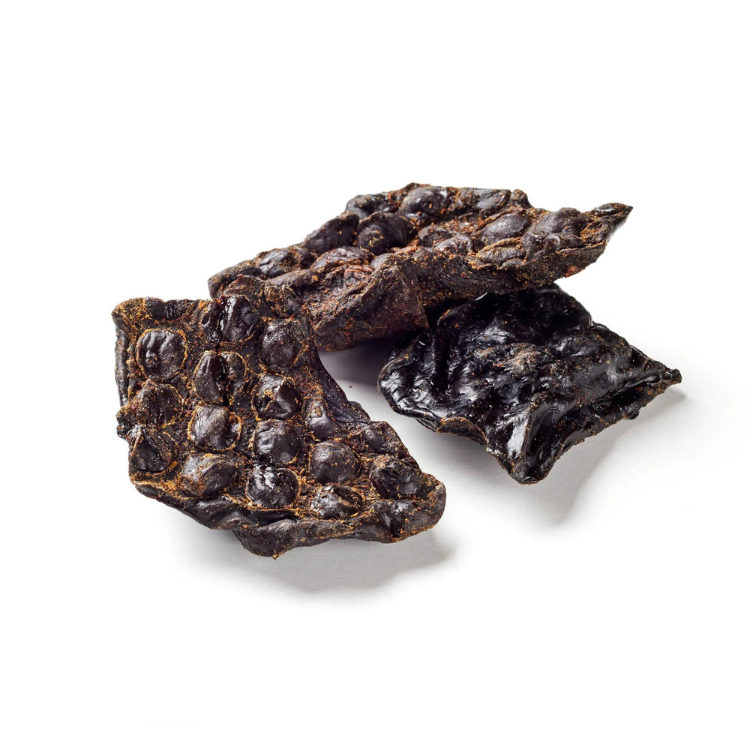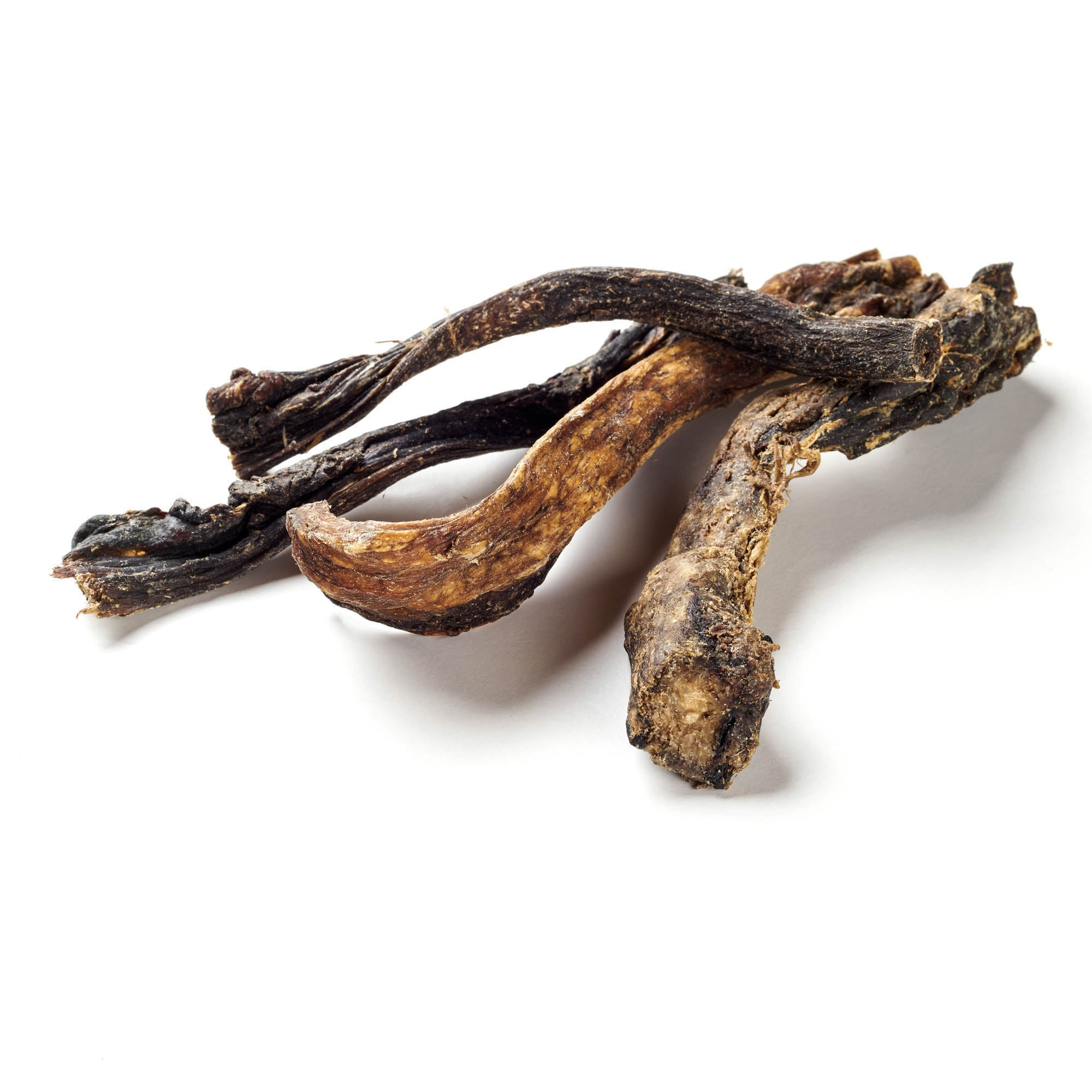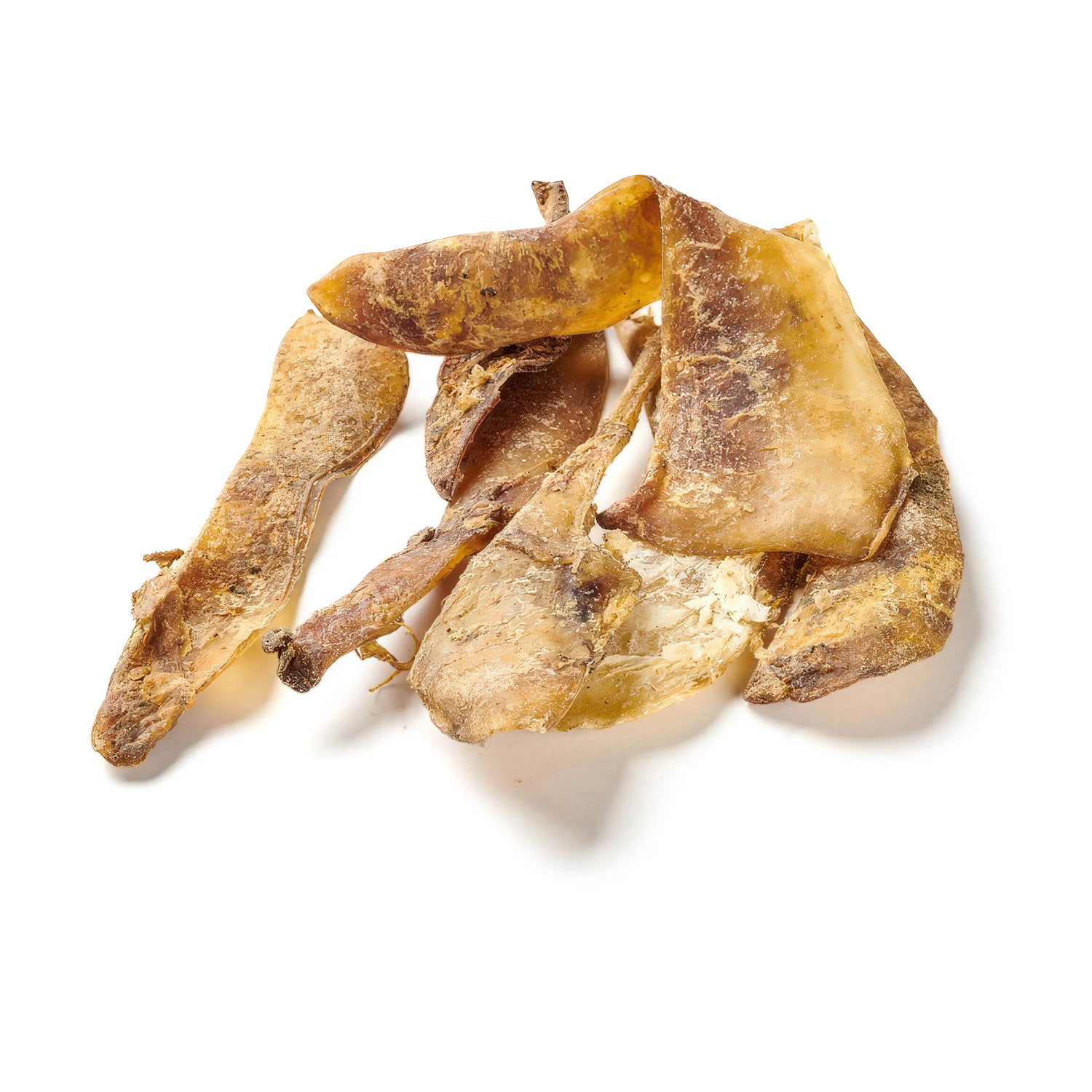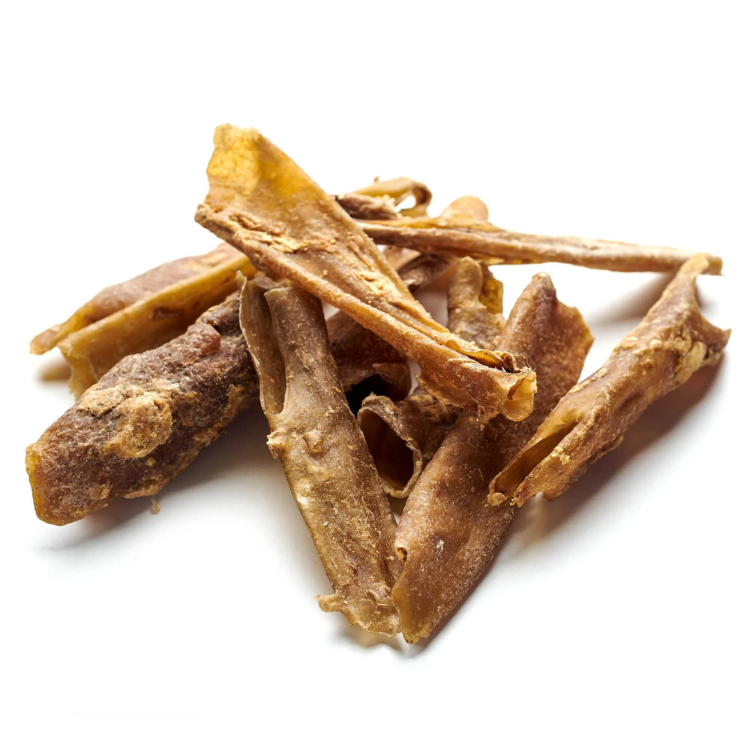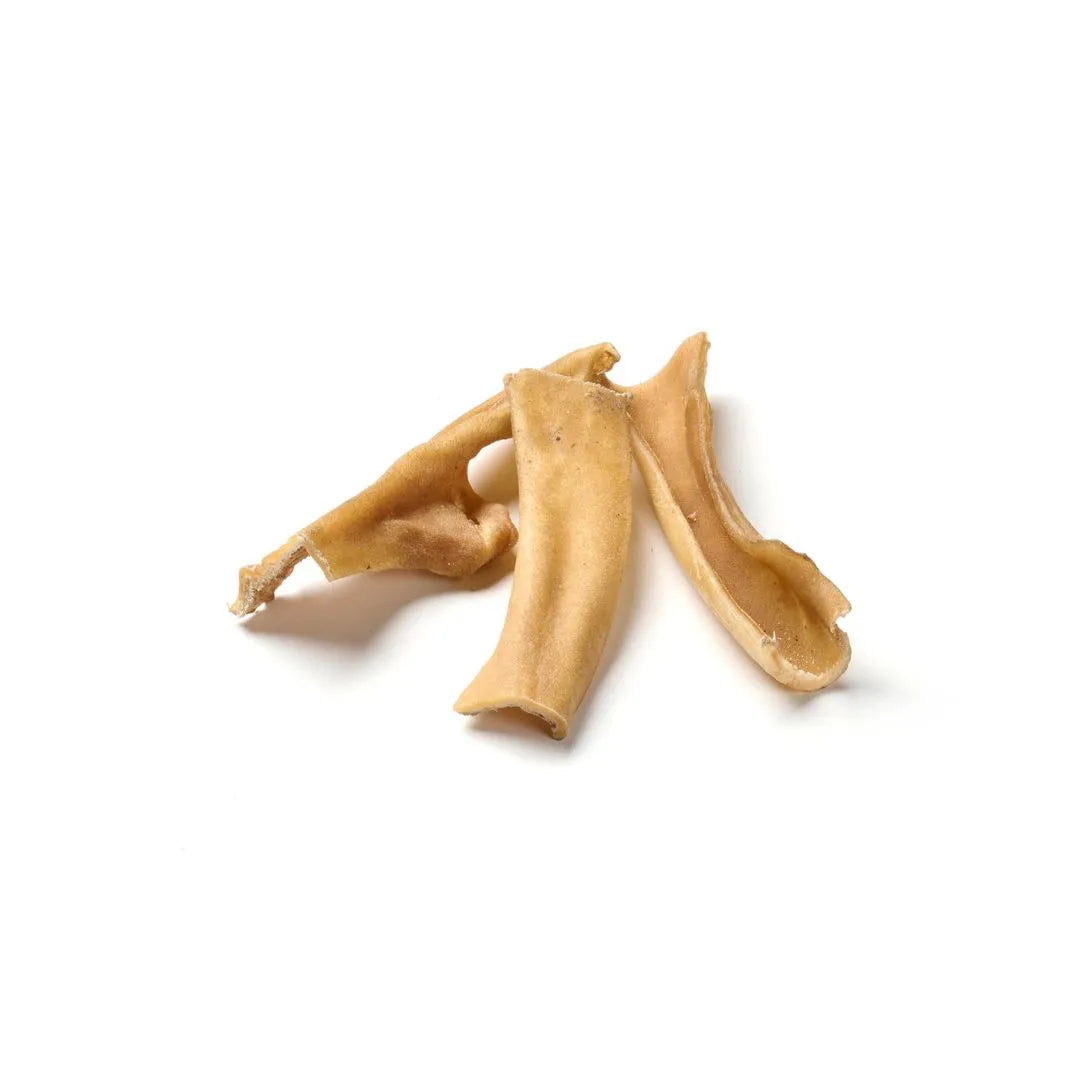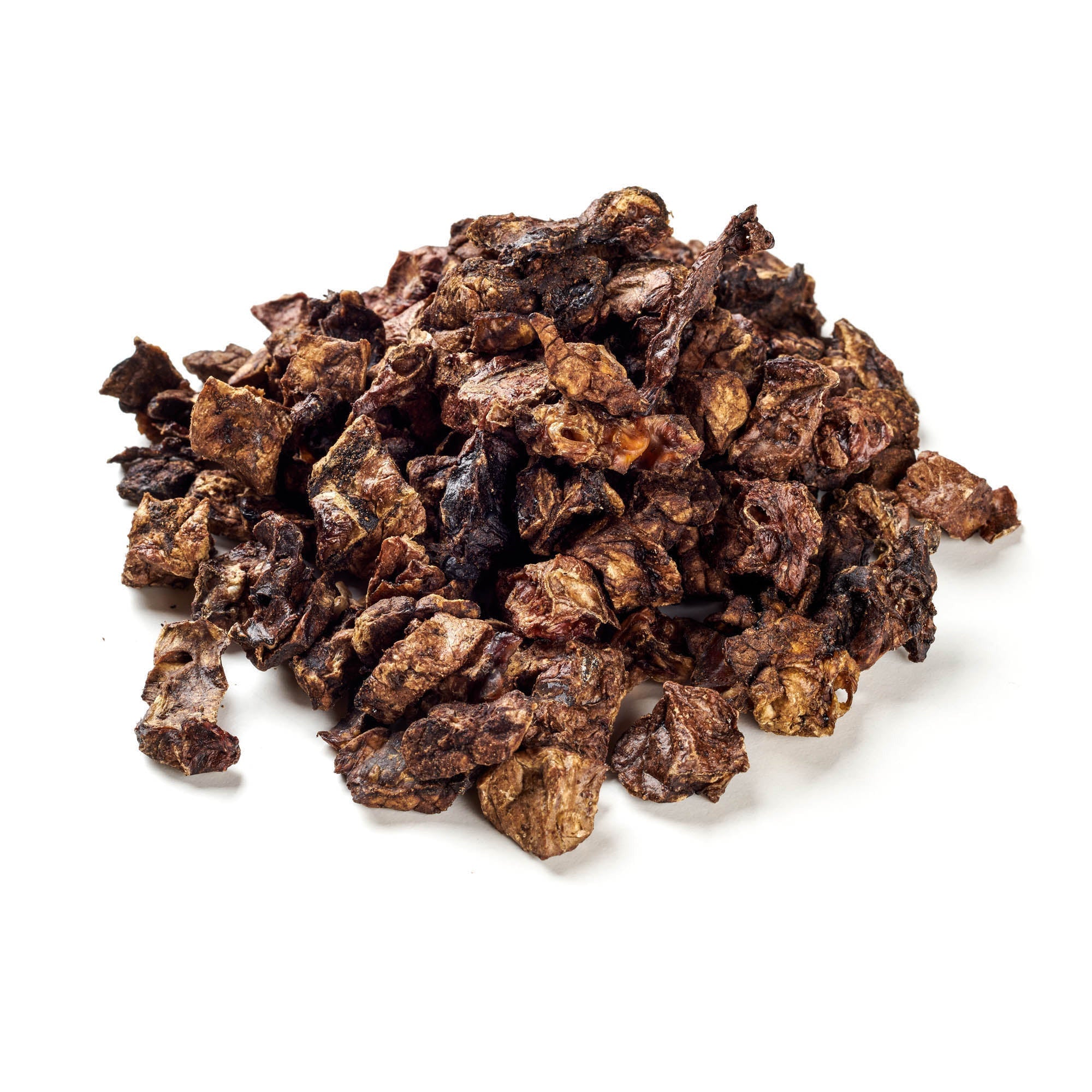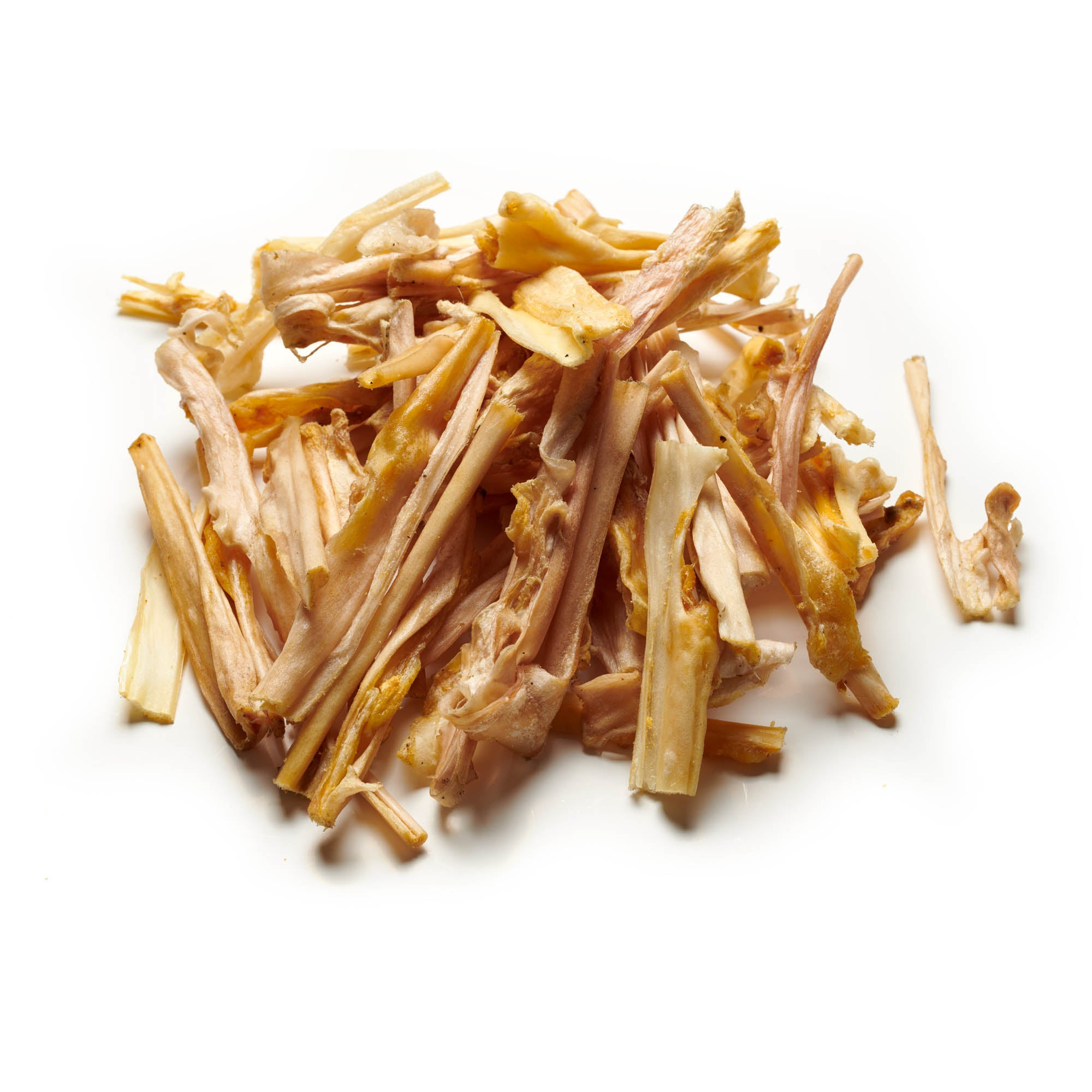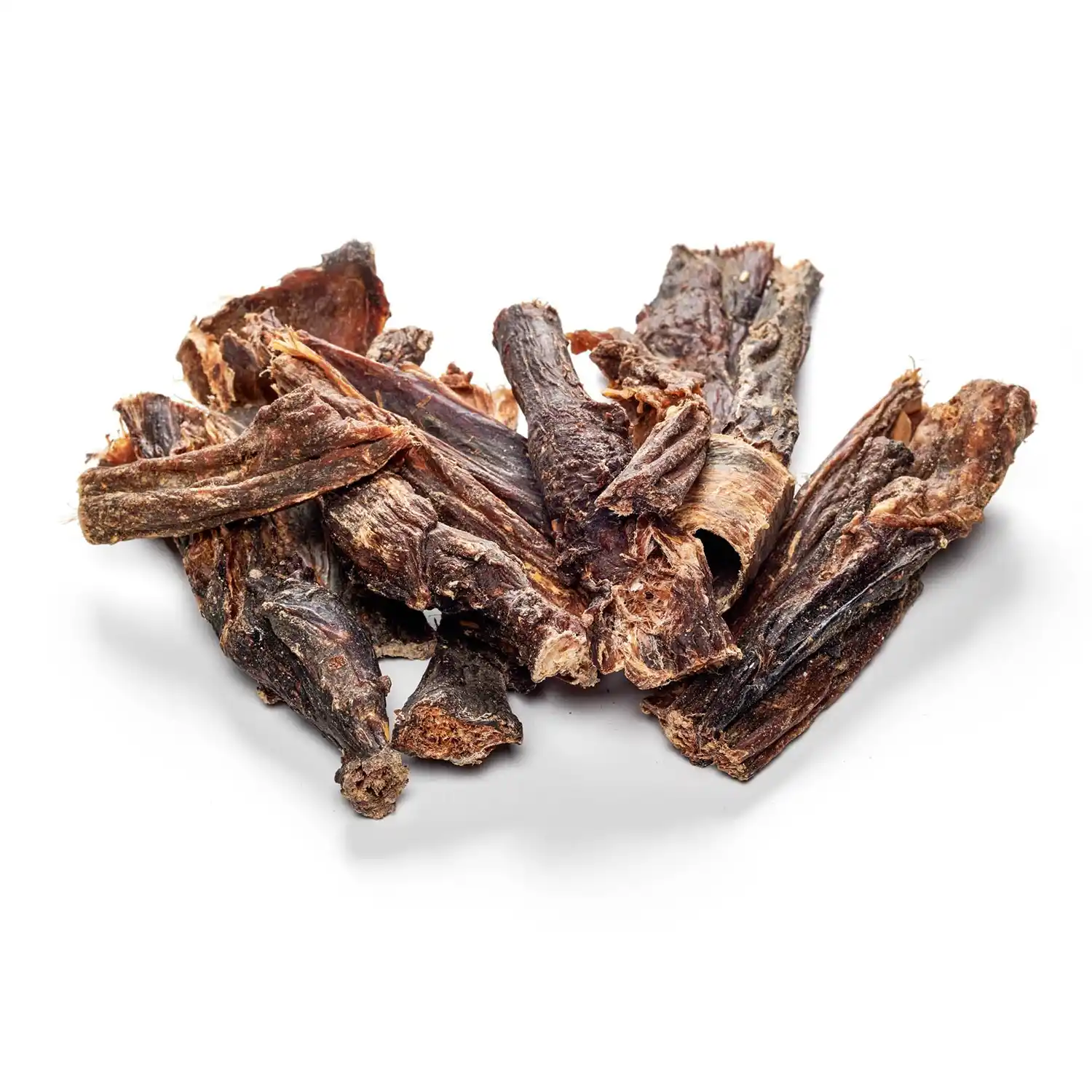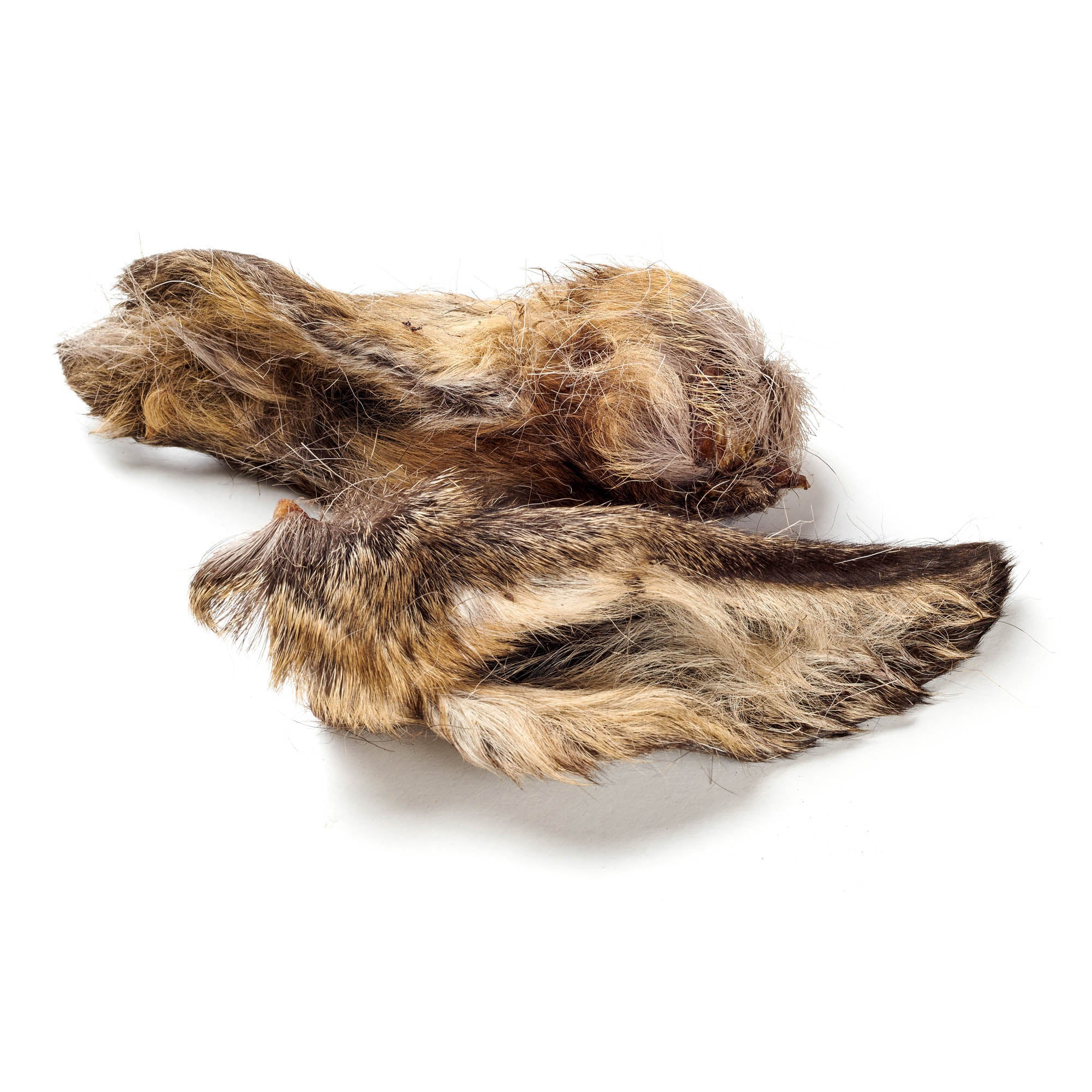
How many teeth does a dog have and how important is dental care?
Share
Contents: How many teeth does a dog have and how important is dental care?
- What functions do dogs’ teeth have?
- Development of dog teeth
- How many teeth does an adult dog have?
- Possible problems with dog teeth
- Dental diseases in adult dogs
- Dental care for dogs: What you can do
- Conclusion
Pamper your dog with our delicious chews!
The importance of dental care for dogs cannot be overemphasized. Dental disease can not only cause pain, but can also lead to serious health problems. However, with the right care and attention, many of these problems can be avoided. Let's delve into the fascinating world of dog teeth and discover how we can help our four-legged friends lead a healthy and happy life.
What functions do dogs’ teeth have?
Your dog's teeth perform a variety of important functions that go beyond simply tearing and chewing food. Unlike humans, food is not thoroughly ground and mixed with saliva, but rather swallowed in relatively large pieces and digested in the stomach.
- Tearing and chewing: The main function of the teeth is to tear and chew pieces of meat. This allows the dog to quickly ingest and swallow its food.
- Incisors (scrapers): These small but powerful teeth are designed to scrape flesh from bones. They also play an important role in grooming by nibbling parasites and dirt out of the fur.
- Canines (fangs): These long, sharp teeth are used to hold and kill prey. They are strong and can penetrate deep into flesh to tear it effectively.
- Premolars and molars (back teeth): These wider teeth are responsible for grinding and crushing food. They allow the dog to chew harder materials such as bones.
Gobbling food does not have a negative impact on digestibility, but it can pose a choking hazard if the bite is too large. Each tooth has its own special function, which is of great importance for the dog's food intake and general health.
Development of dog teeth
The development of dogs' teeth begins shortly after birth and takes place in several phases. Puppies are born toothless, but the first milk teeth break through between the third and sixth week of life. At around eight weeks, the young dogs have a complete set of milk teeth with 28 teeth. Between the fourth and seventh month, the change of teeth begins, when the milk teeth fall out and are replaced by 42 permanent teeth. Weaning puppies from biting can then be a real challenge!
This process takes several months, depending on the breed of dog , and is usually completed more quickly in larger dogs than in smaller breeds. In adulthood, the teeth usually remain stable as long as no dental problems or injuries occur. Good dental care is crucial to avoid tartar and periodontitis.
For comparison, humans have two generations of teeth: milk teeth and permanent teeth. Children have 20 milk teeth, which are replaced by 32 permanent teeth between the ages of six and twelve. Cats, on the other hand, have 26 milk teeth, which are replaced by 30 permanent teeth at around six months of age. Like dogs, cats also require regular dental care to prevent dental disease.
How many teeth does an adult dog have?
42 - many people think that this is the big answer to the last question of life, the universe and everything else. But we know better, because 42 is nothing other than the number of teeth our dogs have. An adult dog has exactly 42 teeth - at least usually, which are positioned in such a way that they interlock when the mouth is closed. This special arrangement is called a scissor bite.
- Upper jaw: There are 20 teeth here. The six relatively small incisors are located in the front part. There is also a large canine on each side, followed by eight front and four back molars.
- Lower jaw: The dog's lower jaw has a total of 22 teeth. These include two canines on the bottom and eight front and six back molars.
This precise arrangement allows dogs to tear and chew their food effectively, which is important for their nutrition and overall health.
Deviations from the standard
However, not all dog breeds always have exactly 42 teeth. While an adult dog's dentition is usually made up of 42 teeth, the number of teeth can vary in different dog breeds and individual dogs. Here are some factors that can affect this variation:
- Genetic differences: Some dog breeds tend to have more or fewer teeth. Smaller dog breeds, such as Chihuahuas or Yorkshire Terriers , often have fewer teeth due to their smaller jaws.
- Tooth loss: Dogs can lose teeth due to injury, dental disease or age, which can reduce the total number of teeth.
- Birth defects: Some dogs may be born with missing or extra teeth, which is called a dental abnormality.
- Tooth extractions: In some cases, teeth need to be removed by a veterinarian, which also reduces the number of teeth.
So if your four-legged friend doesn’t have 42 teeth, that’s relatively normal.
Discover our selection of premium dog chews!
Possible problems with dog teeth
We humans usually don't like dentists - and so we prefer to take precautions to avoid visits. But with dogs, it's not so easy. They can't tell us when they have toothache and we often don't notice until late that something is wrong. That's why it's important to know about the possible problems with dogs' teeth and to prevent them in good time.
Problems with changing teeth
As a rule, the change of teeth in puppies takes place without any major difficulties. Often, young dogs do not even notice when they lose their milk teeth. These fall out while eating, are swallowed or spat out. However, there are cases in which the change of teeth can be painful. This happens, for example, when a milk tooth does not fall out on its own and the permanent tooth underneath presses against it. These complications can be caused by growth disorders in the jaw.
Typical symptoms of tooth replacement problems are:
- Toothache and stomachache
- Diarrhea
- Weight loss
- Loss of appetite
Dental diseases in adult dogs
Even adult dogs are not immune to dental diseases. A common problem is tartar. This forms as a hard deposit on the teeth and cannot be removed by simply rinsing or brushing. Tartar can be recognized by yellowish to brownish discoloration, which often leads to inflammation of the gums. The canines, canines and molars of the upper jaw are often particularly affected.
Another serious disease is periodontitis, a bacterial inflammation of the gums. This can lead to severe toothache and eventually tooth loss. Without treatment, periodontitis can also lead to systemic health problems such as heart disease. Regular dental care is crucial to prevent dental disease. This includes professional dental cleanings at the vet and daily dental hygiene at home. This can effectively prevent inflammation and tooth loss.
Dental care for dogs: What you can do
Any dog can be affected by dental disease. To prevent dental problems, you can support your four-legged friend with dental care by taking a few simple measures. If your dog only eats wet food, cleaning his teeth will be more difficult. It is therefore helpful to offer him chewing bones and dry food as well. Chewing on hard food mechanically cleans the spaces between the teeth and thus helps prevent tooth decay and tartar. Solid chews, such as chewing bones and special dental care treats, are particularly effective because they clean the teeth naturally.
Species-appropriate food
A healthy, species-appropriate diet is essential for your dog's dental health. Pay attention to the ingredients of the food and avoid ready-made food that contains artificial colors, preservatives, flavors and sugar. These additives are neither good for your dog's teeth nor for his general health. Instead, choose high-quality, natural food that provides all the necessary nutrients.
Dog toothbrushes and dog toothpaste
For additional dental care, you can use special dog toothbrushes and toothpaste. The sooner you get your dog used to cleaning with a dog toothbrush, the better he will accept brushing. Start slowly and make brushing a positive experience by combining it with rewards and praise. Regular brushing helps remove plaque and prevent tartar buildup.
Other dental care options
In addition to the measures mentioned, there are other ways to promote your dog’s dental health:
- Cheese chewing sticks: These special chewing sticks are not only delicious, but also helpful in cleaning teeth.
- Teeth cleaning toys: Toys with a rough surface or special nubs can help clean teeth while your dog plays.
- Dental care gels: There are special dental care gels that can reduce plaque and tartar buildup. They can simply be applied to the teeth.
By taking these measures, you can help maintain your dog's dental health and effectively prevent dental problems. Regular dental care is crucial to prevent inflammation, tooth decay and tooth loss, and contributes significantly to the well-being of your four-legged friend.
Conclusion
Your dog's dental health is crucial to his well-being and quality of life. A strong set of teeth is important for feeding, playing and exploring. An adult dog normally has 42 teeth, but genetic differences and dental disease can affect this number. Puppy teething is usually straightforward, but complications can occasionally arise. Adult dogs are susceptible to dental diseases such as tartar and periodontal disease, which can cause serious health problems without regular care.
Regular dental visits and daily dental care are essential to ensure your dog's dental health. This includes chewing bones, dry food, special dental care products and brushing teeth with dog toothbrushes and toothpaste. This will help prevent dental problems and ensure your dog lives a healthy and happy life.
<Make your dog happy with our tasty chews!

